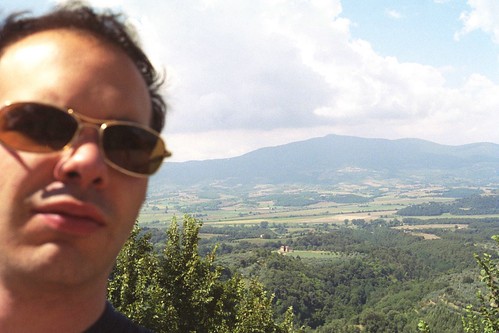
It is difficult to categorize Henri Bergson’s role in philosophic history. On one hand his enormous presence included profound intellectual relationships with the 20th centuries greatest minds: Carl Jung, Albert Einstein, Bertrand Russel, T.S. Eliot, William James, Gilles Deleuze, to name only a few. On the other hand, his work resembles a western re-articulation of much older ideas found in Zen Buddhism among other eastern intellectual and spiritual philosophies/practices.
Bergson's theories of time, consciousness, and evolution were celebrated by the masses for their life-affirming nature yet condemned by the Roman Catholic Church for recognition of the impenetrable continuity of reality - they called Bergson a pantheist. His political influence was hardly indirect - meetings with Woodrow Wilson helped to sculpt the League of Nations which was later replaced by the United Nations. His publications garnered him the Nobel Prize for Literature in 1928 (recognized by some as the only philosopher to win in Literature). And perhaps most amazingly, despite the complexity of his philosophies, his prose and lecturing style resonated with the public at large throughout all of Europe and even America; he was a true populist icon. Amidst the folklore is the story where his 1913 lecture at Columbia University generated enough popularity to cause the first traffic jam in the history of Broadway.
Some view Bergson as anti-scientific, despite his academically recognized mathematical and biological accomplishments. Although his once highly publicized critiques of Einstein’s General Relativity and his elaborate contextualizing of Darwin's Theory of Evolution have more or less faded into the collective forget, even today they offer more than enough stimulation to ponder wild new possibilities to accepted notions.
Perhaps the most basic distillation of Bergson's philosophy deals with
intuition and its elusive yet very real role in the pursuit of any conscious thing to truly "know" anything at all. All science and reason - human understanding at large - seems to sense an elephant in the room. Yet, as Bergson explains, our very survival largely depends on ignoring this elephant. This elephant has no name, and even if it had a name it would be a nameless one. Enter the world of Zen Buddhism - name that nameless elephant:
All things are one and have no life apart from it; the One is all things and is incomplete without the least of them. Yet the parts are parts within the whole, not merged in it; they are interfused with Reality while retaining the full identity of the part, and the One is no less One for the fact that it is a million-million parts.
= JIJIMUGE doctrine of the Kegon School of Japanese Buddhism.
OOOOOOMMMMMMMM.
It would almost seem that human consciousness is designed to ignore the completeness of things, yet derive it all the same. Hmmm.
Mind and matter are divergent tendencies; they point to an original and necessary dichotomy; they are opposite in direction; but they are mutually complementary and imply the unity of an original impulse. The new concept therefore is of a reality with which life and consciousness are identical, as distinct from the concept of a reality independent of life and conditioning it, and upon which it depends. This new concept in its turn suggests a new working principle in the biological and psychological sciences. The principle is that the great factor in evolution is a kind of unconsciousness. Such unconsciousness, however, is not a primitive self-sufficient principle. It is not an Absolute, as some metaphysicians have held. It is, on the contrary, a restriction of consciousness which life possesses in right, a restriction contrived by life in order to fashion the instrumentality of efficient action. So that while the philosophical problem of the past has been to define the nature of consciousness, explain its genesis, and determine its relation to the external reality inferred as conditioning it, the philosophical problem before us today, if we accept the new concept, is to explain the nature and genesis of unconsciousness.
= W. Wildon Carr in his Preface to Mind-Energy, H. Bergson.
More later.




